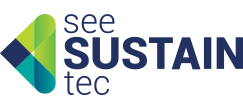Front-runners like Contarina and the municipality of Treviso (Italy), Besançon (France), the region of Flanders (Belgium) and many others which achieved high levels of recycling are always ready to share their best practices. The network also includes members looking for specific solutions, for example with the choice of technology of production of compost like Koprivnica (Croatia) or with the possible implementation of landfill levy and taxes on residual waste like the Southern Waste Region (Ireland).
On top of supporting the exchange of experiences between its members, ACR+ provides a technical expertise. This knowledge is kept up-to-date by the participation in European projects, focusing on innovation and research in the field of material resources management. Each of the projects in which ACR+ is involved replies to needs expressed by its members and focuses on key-topics such as green public procurement, bio-waste management, waste management in territories with high constrains (touristic cities, islands, coastal areas, etc.) and more.
For example, ACR+ is a partner of the IMPACTPapeRec project (
http://impactpaperec.eu) which aims to put Europe at the forefront of Paper for Recycling (PfR) collection. The main objective of IMPACTPapeRec is to provide an innovative and common knowledge platform, which enables cooperation between the key stakeholders involved in the paper value chain. Several discussion workshops are organized within project partners and with external experts. The main output of the project is a best practice handbook that aims at providing hands-on guidance to municipalities and other stakeholders on how to improve their collection system in order to increase paper (and other material) recycling rates. For that data about paper recycling from 13 best practices and cluster will be collected and analysed. The project focus on some specific territories with different needs, namely municipalities in Romania, Bulgaria, Spain and France.
The commitment of ACR+ to support local and regional authorities with the preparation and implementation of ambitious circular economy strategies has also taken the shape of the Circular Europe Network (CEN). Launched in 2014, this initiative gathers ACR+ members that are committed to improving their resource strategies and strengthening sustainable development in their territories. It builds on the expertise of European front runners within the ACR+ network in order to gather, analyse and exchange information on efficient circular economy strategies implemented by cities and regions. These good practices are available as factsheets on the Circular Europe Network website (
www.circular-europe-network.eu).





